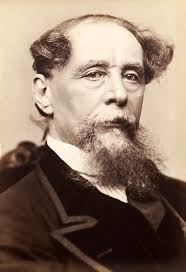
by tim middleton
The celebrated Victorian novelist Charles Dickens wrote many hugely popular novels which began as serialised episodes in newspapers, but for many people, his greatest novel is Great Expectations. The young protagonist Pip, an orphan, who is given a whole new life by his benefactor, has “great expectations” as he is in line to inherit a huge amount of money on his benefactor’s death. Equally, he himself, perhaps slightly naively and immaturely, has “great expectations” of his own as he has high hopes of a successful career and a loving relationship. In a similar way, we have great expectations of our youngsters today; in fact, we have eight expectations.
We are all familiar with expectations after all, we all expect many things. For example, it will not escape our notice that society has eight (great) expectations (at least) of its government: freedom, justice, peace, security, equity, education, employment and health. It is the same when we spend money on goods: we have eight (great) expectations about what we buy. We expect the item to work, to do what it is meant to do, to last, to provide value for the money we spend, to help us, to be complete, to be explained clearly, to delight us.
In a similar way, when we become new parents we may somewhat naively, and immaturely but nonetheless confidently, have eight (great) expectations of our soon-to-be-born child. We just expect our child will be healthy, clever, talented, beautiful, well-behaved, successful, cheerful and adorable. We expect our baby to be born ‘normal’, natural, nice! Such thinking is somewhat naïve if we only pause to consider all the things that can possibly go wrong and affect our baby.
However, what should we expect of our children? To a certain degree we expect of them what we expect of goods that we buy (as noted above). We can expect them to work; to do what they are asked to do; to last the distance at school; to provide value for the money we spend on them; to be of help to us and others); to be a complete rounded individual; to understand clearly our instructions; to delight and thrill us. These are eight great expectations.
Put slightly differently, though, the eight expectations we as parents should have of our children are these. We can all expect of all our children full effort, not first prize; we can all expect honest endeavour not pure talent; we can expect humble responsibility not stunning leadership; we can expect consistency not complacency; we can expect character not qualifications; we can expect initiative not dependency; we can expect respect not reveries; we can expect progress not success.
Of course, we will be aware that we have higher expectations of some things than of others. We expect a Ferrari to go faster than a Honda Fit, we expect a smart phone to do more than a normal phone, we expect a solid oak table to last longer than a camp table. The same thinking therefore should apply to our expectations of our children. Some children will go faster than others, be it in work or sport or cultural activities. Some children will be able to do more than others. Some children will last longer than others. That is natural, normal and should be nice. However, we should keep in mind, and should pass on to our children, the maxim that “to whom much has been given, much is expected” (and indeed required, as some would add to the saying).
The fact is, and this should not escape our attention, just as the expectation of the goods that we buy are to a considerable degree dependending on how we handle those items (not abusing or misusing them, not neglecting or negating them), so the same will be true of us as parents in terms of the expectation we have of our children. We may well have great expectations of them but we are expected to treat them responsibly, maturely, carefully, considerately, individually, personally, patiently and positively.
- Chamisa under fire over US$120K donation
- Mavhunga puts DeMbare into Chibuku quarterfinals
- Pension funds bet on Cabora Bassa oilfields
- Councils defy govt fire tender directive
Keep Reading
We can have great expectations for our children but those expectations must be realistic and holistic. Just as the theme of the novel ‘Great Expectations’ is that “affection, loyalty, and conscience are more important than social advancement, wealth, and class”, so too the theme of this article is that effort, responsibility and progress are greater expectations of our children than prizes, talent or success. Ignore that and we can expect our child to be “Pipped at the post” and lose out completely.
Tim Middleton is the executive director of the Association of Trust Schools [ATS]. The views expressed in this article, however, are solely those of the author in his private capacity and do not necessarily represent the views of the ATS.











